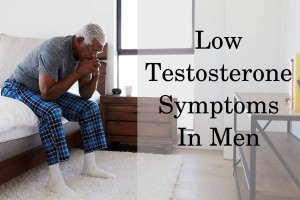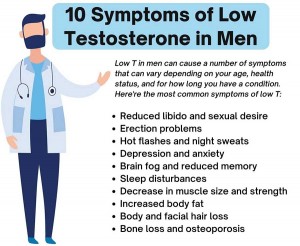In this article
Low testosterone (T) is a common condition among aging males. However, some cases occur due to factors such as alcohol or obesity and those patients need lifestyle changes rather than medication therapy.
However, if you have at least one symptom of low T and your tests confirm hypogonadism, this indicates you may benefit from testosterone replacement therapy (TRT).
Most men with hypogonadism have multiple symptoms that worsen their well-being and quality of life. Thus, visiting a medical specialist and getting a diagnosis as soon as possible is the best way to tackle the condition.
Men who do not take action about low testosterone levels are at a higher risk for anemia, osteoporosis, diabetes, heart disease, and premature death.
Most common symptoms and signs of low T
Male hypogonadism can cause a spectrum of symptoms that may vary from person to person. The exact complaints will depend on factors like your age, health status, and for how long you have the condition.
Another sign of hypogonadism is reduced insulin sensitivity and increased risk of diabetes.
However, studies reveal that type 2 diabetes has a strong hereditary component. Thus, hypogonadal men who are genetically predisposed are much more susceptible to develop diabetes as a complication.
Long-term hypogonadism if left untreated can lead to additional signs such as osteoporosis, anemia, and heart problems.
Symptoms of low T are often connected, and one problem can lead to another. For example, men with hypogonadism are more likely to gain extra body fat. Studies report that low T also increases the risk for abdominal (central) obesity.
In turn, central obesity contributes to complications which are also typical effects of low testosterone in men. They include elevated cholesterol and triglyceride levels, insulin resistance, and increased risk of diabetes.
Reduced libido and sexual activity
Low testosterone is scientifically proven to reduce libido and your ability to have satisfying sex.
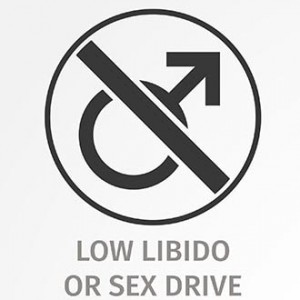
Low T can also affect your testicular size, especially in cases of secondary hypogonadism. It occurs when there is not enough stimulus from the pituitary gland to the testes.
Normally, the length of the testicles is around 2 inches (4-5 cm). Hypogonadism is one of the main causes of small testicular size (under 1.5 inches).
Low testosterone levels also lead to reduced semen volume and sperm count, as it is essential for the normal production of spermatozoids.
Erection problems
One of the most dreaded complications of hypogonadism is erectile dysfunction.
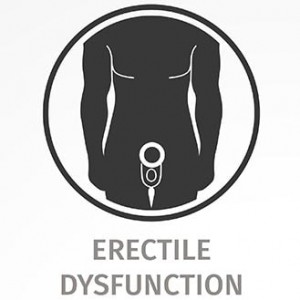
Vasodilators such as Viagra (sildenafil) are the most commonly prescribed medications in ED. However, there are cases of patients with low T who fail to respond to the treatment unless it’s combined with TRT.
On the other hand, TRT alone might also be insufficient to improve erections. Often, erectile dysfunction has complex etiology including hormonal, psychological, and vascular problems.
If there is no improvement in erectile function after 3 months of testosterone treatment, then sildenafil or another similar vasodilator should be added.
Hot flashes
Men who experience a rapid decrease in testosterone levels and develop hypogonadism may also complain of hot flashes and night sweats.
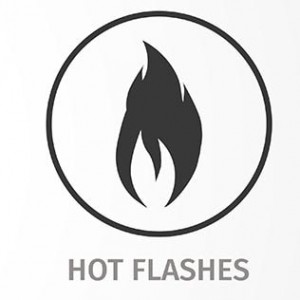
Additionally, testosterone deficiency can lead to peripheral vasodilation causing more blood to rush into the skin which results in the typical feeling you may describe as a “hot flash”. In order to reduce the skin temperature, the body reacts by sweating profusely.
Mental health problems
The most common psychological effects of low testosterone in men are depression and anxiety. Trials confirm that men with hypogonadism are more likely to experience depressed moods compared to their healthy peers.
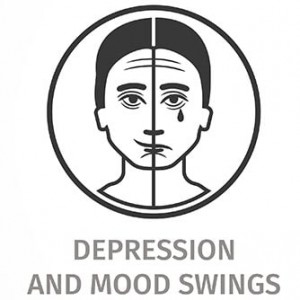
Depression and anxiety
Testosterone may affect mood and emotional state by modulating the GABA and serotonin receptors in the brain. These receptors play a role in multiple brain processes including relaxation, mood, emotional level, etc.
Low T has a negative impact on these receptors and induces symptoms of depression, mood swings, and grumpiness. Furthermore, low testosterone levels may result in increased irritability and anxiety attacks.
Poor concentration and memory
Cognitive problems are another common complaint in men with low T. Decreased testosterone levels in older men are associated with cognitive decline.
Symptoms may include brain fog, reduced memory, and difficulty concentrating
Besides, a meta-analysis including data from more than 5000 men suggests that low T increases the risk of dementia such as Alzheimer’s in elderly men.
Thus, hypogonadism might put you at an increased risk of neurodegenerative conditions.
Fatigue and decreased motivation
Progressive chronic fatigue is one of the most common non-specific signs of low T.
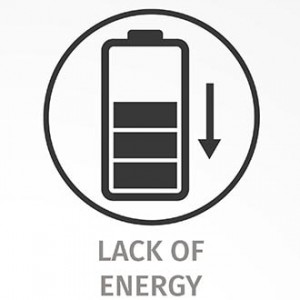
Besides, males with low T are also more likely to experience lethargy and sleepiness. They commonly report falling asleep right after dinner.
Sleep disturbances
Scientists consider sleep problems as a sign of severe hypogonadism. Sleep disturbances such as poor sleep quality, insomnia, and waking up feeling tired can significantly worsen the quality of life.
Some studies suggest that low testosterone might have a negative effect on sleep phases which is why its quality deteriorates.
On the other hand, sleep disturbances associated with obesity, such as sleep apnea can further lower testosterone levels and worsen hypogonadism. This creates a vicious cycle unless obesity and sleep apnea are properly addressed.
Patients with severe sleep apnea and low T are not suitable for testosterone therapy
This is thought to be due to the fact that TRT causes changes in the body’s oxygen requirement and the body’s response to low oxygen levels. This may worsen the symptoms of a condition such as sleep apnea.
Decreased strength and muscle mass
Testosterone is an anabolic hormone with a key role in maintaining lean mass and preventing muscle wasting.
Men who are deprived of natural testosterone production have a progressive decrease in muscle size and strength. The loss of lean body mass also leads to lower muscle endurance.
Muscle wasting contributes to low self-esteem and depression, chronic fatigue, weakness, and bone loss.
Increased body fat
Testosterone regulates fat metabolism by exerting catabolic effects on adipose tissue and stimulating the metabolic rate.
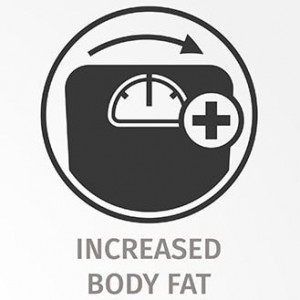
Men with low testosterone levels experience increased lipoprotein lipase and reduced hormone-sensitive lipase activity which facilitates the accumulation of fat inside the adipose cells and results in obesity.
Hair loss
Testosterone converts to dihydrotestosterone (DHT) in several organs including the skin. There DHT stimulates the growth of facial and body hair.
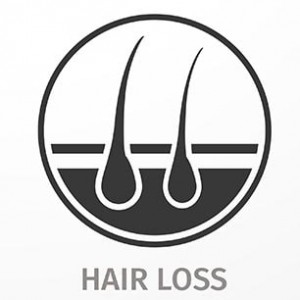
The case studies reveal that TRT does improve other symptoms of low T but did not cause hair regrowth.
The reversibility of hair loss depends on the stage and the condition of the hair follicle. Once the follicle is dead, hair loss is irreversible.
Reduced bone mass
Both testosterone and estrogen decrease in hypogonadal men. That’s because 80% of the estrogen in males is produced by the enzyme aromatase which converts testosterone.
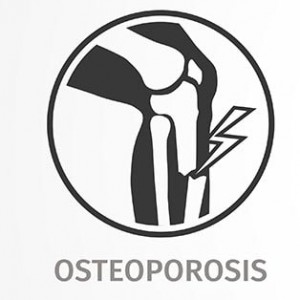
Other contributing factors include reduced physical activity and lower muscle mass in men with hypogonadism.
Causes of primary and secondary hypogonadism
Male hypogonadism has two main groups of causes, and respectively two subtypes – primary and secondary.
Primary hypogonadism is caused by a problem with the testicles, which results in their inability to produce testosterone. That might be due to:
- Genetic conditions (Klinefelter’s syndrome)
- Cryptorchidism (undescended testicles)
- Testicular tumors
- Infections (mumps)
- Treatment such as surgery, radiation, or chemotherapy
The testicles are a part of an endocrine axis called hypothalamic-pituitary-gonadal (HPG). This is why the pituitary gland regulates the normal production of testosterone by the testicles.
Secondary hypogonadism occurs when the testicular function is preserved, but the pituitary gland no longer stimulates them into producing T.
Eventually the lack of stimulation results in testicular atrophy (primary hypogonadism). Causes of secondary hypogonadism include:
- Pituitary tumors
- Genetic conditions (Kallmann syndrome)
- Brain injury or infection
- Pituitary apoplexy (infarction or hemorrhage)
- Anorexia
- Long-term therapy with glucocorticoids or opioids
- Treatment such as surgery or radiation
- Anabolic steroid abuse
Long-term anti-inflammatory therapy with glucocorticoids suppresses multiple regulatory hormones produced by the hypothalamus, which results in low pituitary and testicular hormones, including low T.
Prolonged opioid therapy, for example, for pain relief, can suppress the whole HPG axis and also results in hypogonadism.
Older adults may develop late-onset hypogonadism (andropause) which is related to the diminishing function of both the testicles and the pituitary gland.
How to treat low testosterone in men
You should visit a medical doctor to receive a proper diagnosis and alleviate your symptoms as quickly as possible.
The best choice would be an endocrinologist with knowledge and experience in hormone replacement therapy
Your doctor will perform a thorough medical exam, and assign you blood tests. Your testosterone levels will be measured in the morning when T production is at its highest.
If your testosterone levels are under 300 ng/dl and the results are confirmed by a second test, this suggests you have low T. Then your physician will run additional exams to determine whether you have primary or secondary hypogonadism.
Once you are diagnosed, your endocrinologist may offer you a prescription for TRT. The therapy delivers exogenous testosterone into your body and the goal is to increase your blood T back to normal levels.
Increasing T levels above the normal range is generally not recommended, as testosterone can also cause side effects.
Make sure to use TRT only under a doctor’s supervision. Self-medicating or following online advice increases the risk of adverse reactions and you may end up with more health problems than before.
Our clinic can provide you with experienced endocrinologists who will be happy to assist you at every stage of the treatment process.
This will ensure the safety and effectiveness of your therapy. We can help you alleviate the symptoms of low T and improve the quality of your life as soon as possible.

